US election 2016: What makes Super Tuesday so super?
- Published
What's so super about Super Tuesday? Katty Kay explains
After Donald Trump's resounding win in Nevada, the candidates are already shifting their focus to 1 March or Super Tuesday - a flood of primaries squeezed into a single day. Super Tuesday can be a day of reckoning for campaigns - exposing candidates who can't complete on the national stage and instantly catapulting others to the nomination.

Why so many races at once?
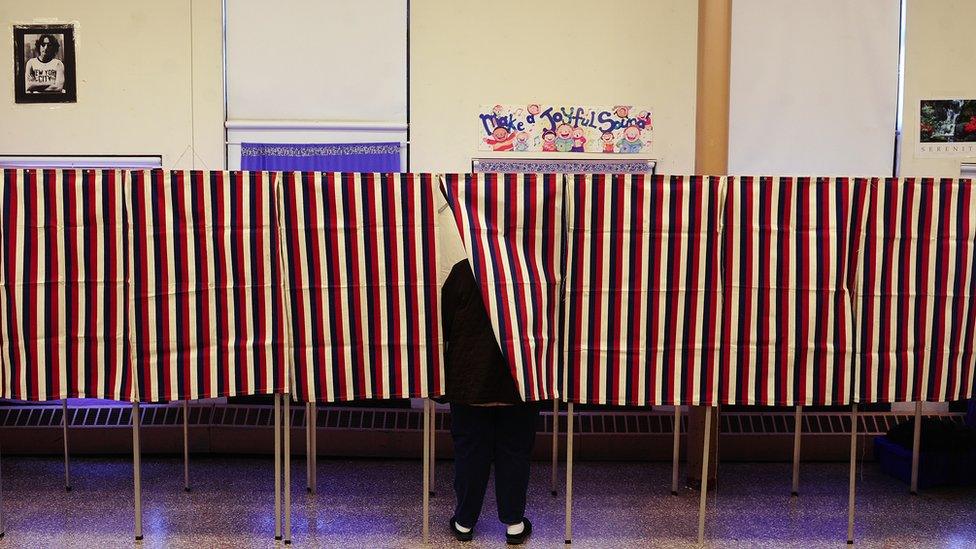
Millions of people will cast ballots for both Republican and Democratic candidates on Super Tuesday
Super Tuesday was developed in 1988 to combat the so-called "Iowa syndrome." Iowa, which votes first in the presidential race, has been criticised for not being representative of the American electorate. It's a small state and candidates often spend months campaigning there. Dedicated candidates with few resources - such as Rick Santorum in 2012 - have been known to excel there. So Super Tuesday is meant to introduce the candidates to the rigours (and the costs) of running a national campaign - creating a sink-or-swim moment for campaigns.

How many states are voting?
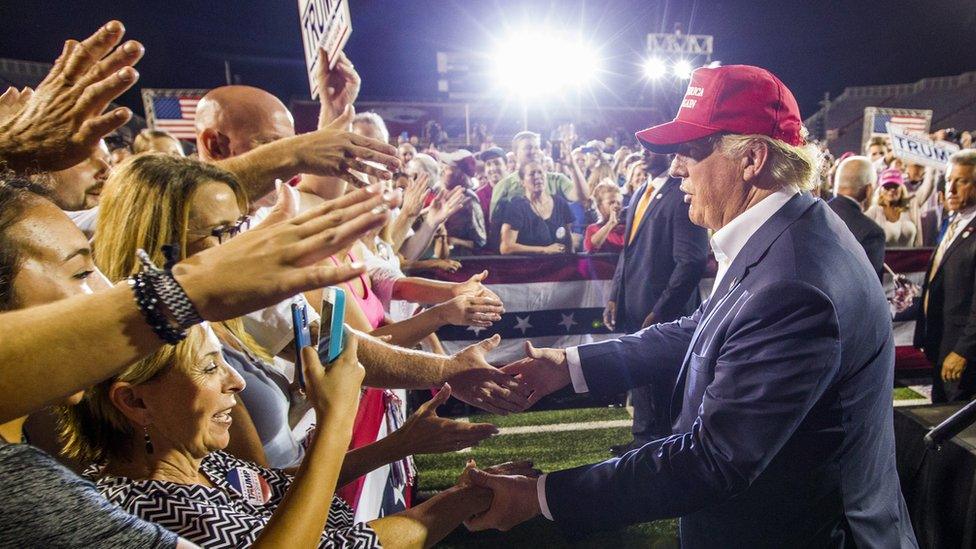
Donald Trump has held several rallies in Alabama - a Super Tuesday state
Republican race: Eleven states in all will vote. Alabama, Arkansas, Georgia, Massachusetts, Oklahoma, Tennessee, Texas, Vermont and Virginia will hold primaries to select the Republican nominee. Meanwhile, Alaska and Minnesota will hold caucuses.
Democratic race: Eleven states in all will vote. Alabama, Arkansas, Georgia, Massachusetts, Oklahoma, Tennessee, Texas, Vermont and Virginia will hold primaries to select the Democratic nominee. Meanwhile, Colorado, Minnesota and the US territory of American Samoa will hold a caucus and Democrats abroad will also submit their votes.
Other events: Republican party officials will hold election-related events in Colorado, North Dakota and Wyoming and in the US territories of American Samoa and Guam, but no votes will be cast. Party leaders in those states will eventually assign delegates to candidates with input from party members.


When should we expect to get results?
Most polls close at 1900 or 2000 EST (midnight or 01:00 GMT on Wednesday) and we could start to get results soon after.
In Alaska, caucusing goes on until midnight EST (05:00 GMT).
Exit polls should give an indication of the winner in each contest.
How many delegates are at stake?
Republican race: In all, 595 Republican delegates - or 25% of the total number of party delegates - are up for grabs. Republicans need 1,237 delegates to win the nomination. Most of the races allot their delegates proportionally, meaning strong second and third place finishers can take home at least some delegates.
Democratic race: Hillary Clinton and Bernie Sanders will compete for 865 delegates. The Democratic candidate needs to obtain 2,383 to win the nomination. Democrats also have something known as "super delegates" - influential party officials meant to act as brake to stop a fringe candidate at odds with the party's platform. Many of these "super delegates" are pledged to Mrs Clinton, but they can switch their allegiance if they see voters embracing another candidate.

What are the states to watch?
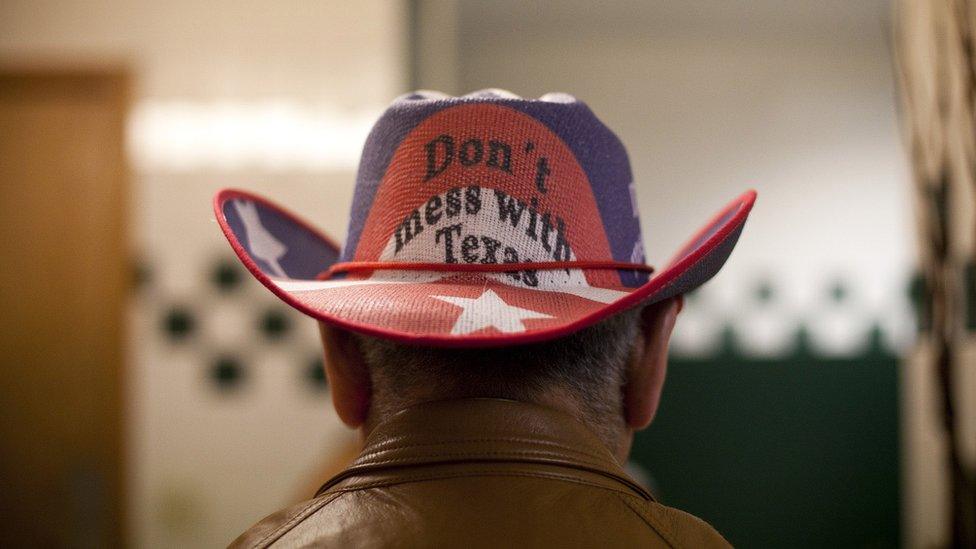
Texas will be a key test for Ted Cruz
Texas: This state has both size and significance. In addition to having the largest number of delegates (55 Republican, 252 Democratic), it is the home state of Senator Ted Cruz. A loss to Donald Trump in his back yard would cripple his campaign. However, Mr Cruz is polling well there and has the endorsement of both the current and former governor of the Lone Star state.
Massachusetts: Moderate voters here could blunt Mr Trump's momentum. It's an open primary, meaning anyone registered can vote in the Republican race, regardless of party affiliation. In an unusual move, the state's largest newspaper, the Boston Globe, has urged Democrats to vote for Ohio Governor John Kasich in an effort to weaken Mr Trump's campaign.

Will this Super Tuesday be the end of the road for anyone?
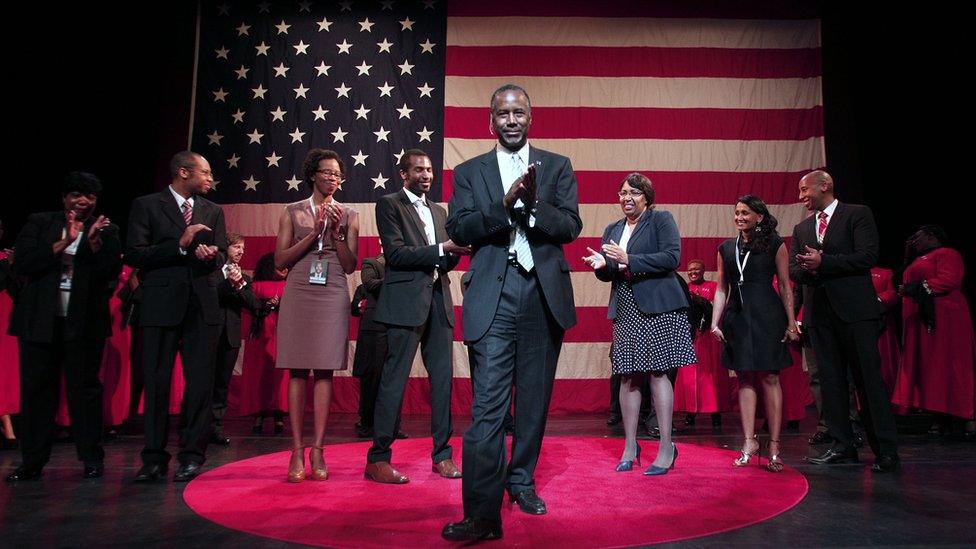
Ben Carson isn't expected to last beyond Super Tuesday
In the past, Super Tuesday has been known to be decisive. Mitt Romney essentially secured the Republican nomination after his Super Tuesday wins in 2012. This year, the result will not be as clear cut. Because many of the states on 1 March allot delegates proportionally, look for some candidates like Marco Rubio and John Kasich to wait until 15 March when large winner-take-all states such as Florida and Ohio vote. That said, the campaign of retired neurosurgeon Ben Carson has privately said it is likely to end his run on Super Tuesday. He has underperformed in the first four Republican contests and many insiders have wondered why he has not called it quits already.
On the Democratic side, Mr Sanders - once thought of as a protest candidate to advance the issue of income inequity - is likely to revert to that status and stay in the race even if Mrs Clinton wins big.
- Published24 February 2016
- Published24 February 2016
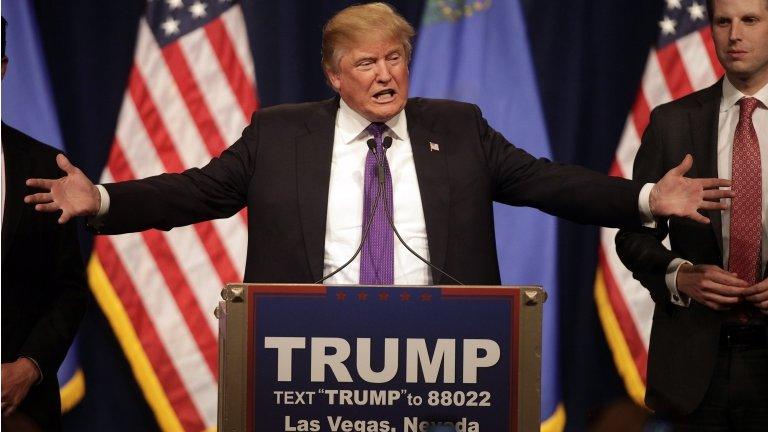
- Published24 February 2016
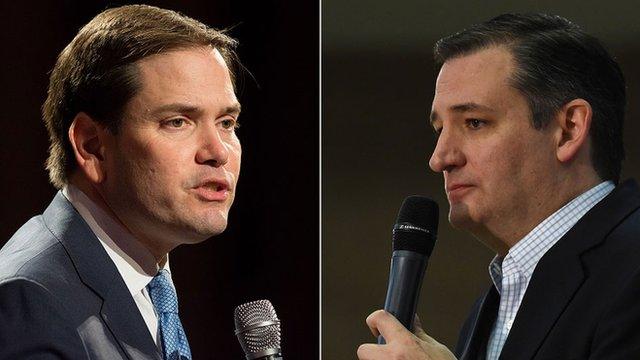
- Published23 February 2016
- Published19 February 2016